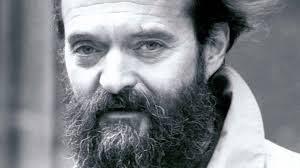Hannah Neimeier at The New Criterion:
 Arvo Pärt (b. 1935) is one of those fortunate composers who has created his own world in music—and is beloved for it in his lifetime. The Estonian, who for the last decade has been the world’s most performed living composer, started his career writing neoclassical pieces influenced by the Russian greats, chiefly Prokofiev and Shostakovich. Then he discovered Schoenberg’s twelve-tone scale, serialism, and other twentieth-century experimental techniques and soon became a prominent member of the avant-garde. But Soviet censors disapproved, and in the late 1960s their unofficial censorship removed Pärt’s music from concert programs and sent him into what he called a “period of contemplative silence.”
Arvo Pärt (b. 1935) is one of those fortunate composers who has created his own world in music—and is beloved for it in his lifetime. The Estonian, who for the last decade has been the world’s most performed living composer, started his career writing neoclassical pieces influenced by the Russian greats, chiefly Prokofiev and Shostakovich. Then he discovered Schoenberg’s twelve-tone scale, serialism, and other twentieth-century experimental techniques and soon became a prominent member of the avant-garde. But Soviet censors disapproved, and in the late 1960s their unofficial censorship removed Pärt’s music from concert programs and sent him into what he called a “period of contemplative silence.”
For years he composed nothing, instead studying medieval choral music intensely in an attempt to find the roots of Western music. These transformative periods of creativity and reflection have marked the rhythm of Pärt’s career, and in 1976 emerged from his longest silence yet with a focus on sacred music and an entirely new mode of composition: tintinnabuli.
more here.
